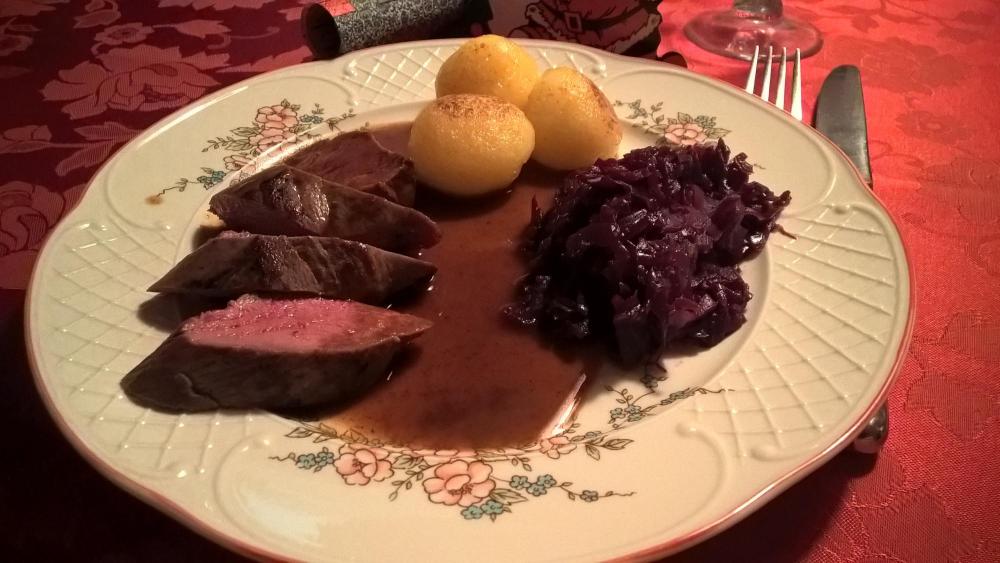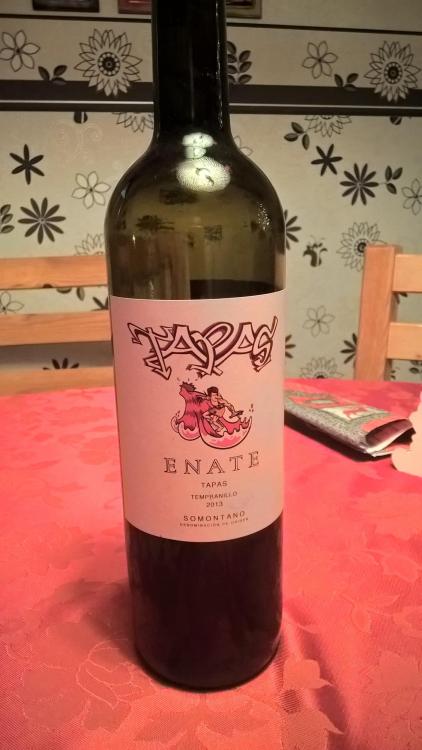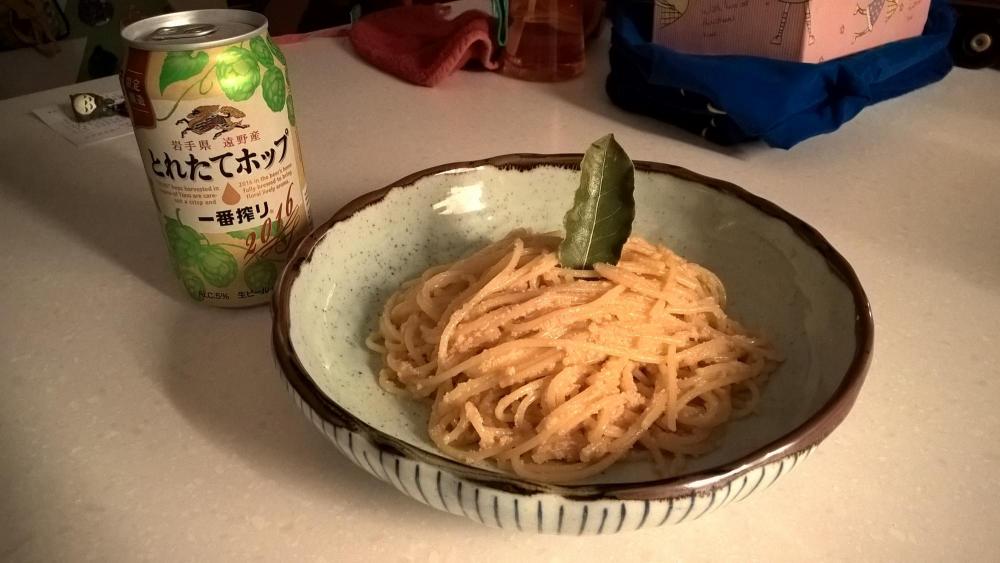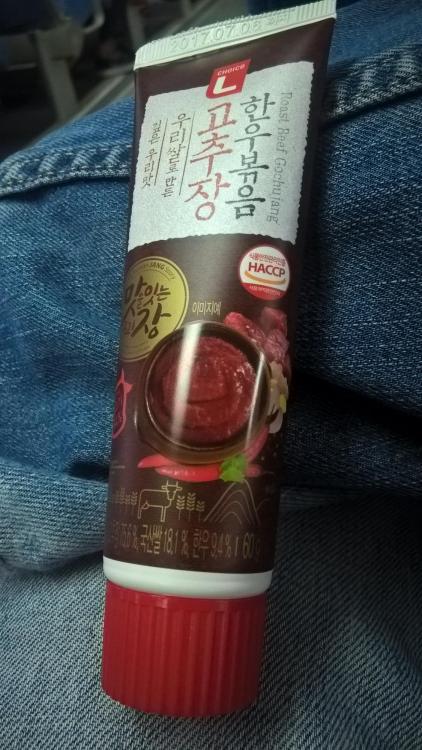-
Posts
4,415 -
Joined
-
Last visited
Content Type
Profiles
Forums
Store
Help Articles
Everything posted by Duvel
-
I think that depends where you are located ... if in France I'd say look harder If in a country that does not allow import of unpasteurized cheese maybe you will never get a proper one ... I could go on, but maybe you give me a hint first.
-
Thanks! I'll search for that on my next business trip! And no worries: my Mandarin is lousy, but will get me those mushrooms on a market. My Cantonese would not even get me to the market ...
-
Is it easy to get dried Matsutake in China ? I have failed to do so in both HK and Korea ... What would be name and where should I look for them ?
-
Not having heard heard of "affogato" and being too lazy to google it, how should I know ... If so, plus one on that from my side !
-
Wow ... no bite marks on the thinner rindless end. What self-control you have ...
-
if you can make a decent espresso (or something "short" along the lines), that combined with a scoop of "nutty" ice cream does work very well too. It's like a half-molten ice coffee ... Häagen Dasz Macadamia Nut Brittle and a double shot of espresso is my to gi dessert if I don't have any ingredients in the house and need to impress on short notice. Needles to say that a glugg of Whiskey does complement the taste (for J and you) ...
-
Vanilla ice cream with pumpkinseed oil is very tasty and looks spectacular. Not quite Baileys, but hey ... Come to think of it, toasted sesame oil would have the same direction. But then again sesame ice cream is probably not as "exotic" for him ...
-
You are right. But if you have ever been to Korea and enjoyed third place with very drunk colleagues you know that there are severe fights for the last morsels of fried chicken, that might sustain you for another round of Soju ...
-
Better even with the flat steel ones from Korea. Then you can pin the offender down on the table
-
That's my kind of food ... Thanks for the inspiration !
-
-
Two fried free-range eggs and a home-made Epi fresh from the oven ... Doesn't get much simpler (or better).
- 498 replies
-
- 10
-

-
It still is in my books ...
-
If you guys pay for the shipping I'll send it over for free
-
A regular breakfast at my in-laws in Catalunya: fairly typical choice of sweet breads (ensaimada, empanadas, croissants, coca), some local cheeses and cured meats. An omelet with onions and some left-over jamon bits ("truita de ceba"). All eaten with the ubiquitous bread with tomato, olive oil and salt. Strong coffee. Good start in the day (please disregard the horrible tablecloth)
- 498 replies
-
- 10
-

-
Called "Trollschoppen" in the Rhineland Palatinate: half white wine, half sparkling wine. Drunk from a "Schoppen" glass, thus half a liter. Considered the last drink at the wine fest before heading home (or at least trying to) ...
-
After stuffing myself for the better part of December (ok, actually the better part of 2016) I decided to keep things low for now ... So I shared my three-year olds lunch (because seafood is so lean)
- 500 replies
-
- 10
-

-
I like it at room temperature straight out of the bottle, after snatching it up at the gasoline station store ...
-
Classic sauce from neck and bones of the venison, roasted with tomato paste and root veggies, red wine reduction. Pinch of Garam Masala and Gingerbread spice added before adding the liquids, simmered with dried cherries and a bit of orange peel. After finishing and reduction binding the sauce with toasted dried gingerbread ... Excellent "Christmas touch" to a nice meal
-
In Germany for Christmas: a hunter friend brought a saddle of venison from a one year old ... Tonight venison filets with gingerbread sauce, potato Knödel and braised red cabbage. Together with a surprisingly fruity red from my in-laws ... Very nice!
- 636 replies
-
- 17
-

-
Maybe steam egg whites in small halfspherical molds (a snail serving dish comes to mind), then pipette the egg yolk mixture on top ..?
-
It's close to Pasta with Bottarga: Briny, fishy, bit spicy. A very nice person brought me fresh Mentaiko from her trip Tokyo, and then just butter, shoyu, dash of squeezed lemon ...
-
There are two aspects: 1) The real salt concentration (how much is dissolved) 2) The perceived saltiness While we talk mostly about the former, we usually mean the latter. This is why sugar/starches (e.g. from potatoes)/gelatine/low ambient pressure works to make oversalted things more palatable. It's merely a perception thing, but has little to do with the salt concentration. Contrary to the quote there are methods to lower the salt concentration: Osmosis (semipermable membrane, lower salt concentration on the other side), thus stewing unseasoned meat or root vegetables in the liquid can (marginally) reduce the concentration. Reduction/crystallization (works only on defatted and non-gelatinous liquids) and ion exchange (not for houshold use) ...
-
Incidentally, I bought this yesterday in Seoul. It's Gochujang mixed with roasted beef drippings (to intensify the flavor in other dishes). Could be an idea as well: Render of high heat (maybe with garlic?), add some soju and regular Gochujang, strain and reduce to your desired consistency ...











